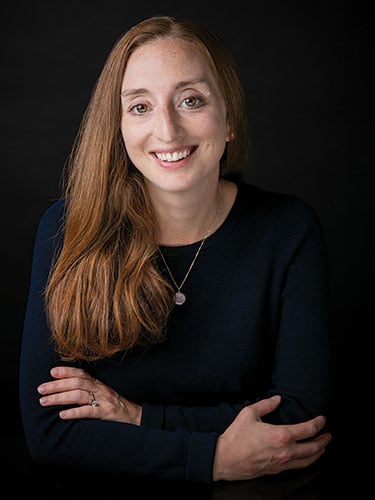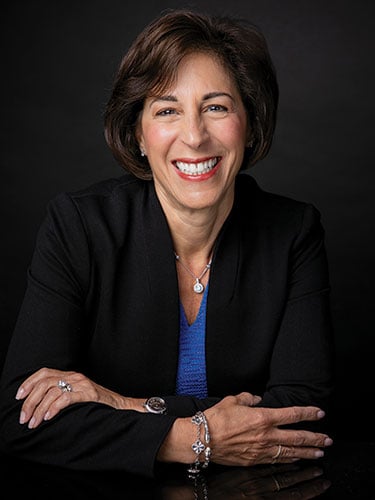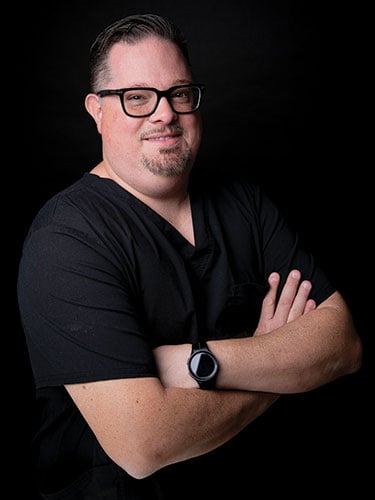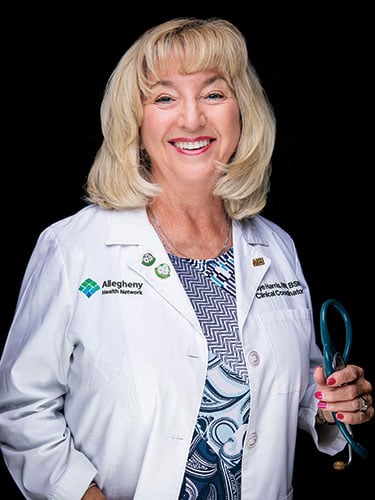Excellence in Nursing – Researcher: Teresa Hagan Thomas
Associate Professor, University of Pittsburgh School of Nursing
Teresa Hagan Thomas’ time studying abroad in Madagascar led her to understand the common denominator impacting every person on the planet: the human body and the importance of keeping it healthy.
Her foray into her profession as a nurse was also deeply personal. Thomas’ sister and father both had cancer, which inspired her to pursue oncology. She attended Pitt’s second-degree program and was two weeks from graduating with a job lined up when she sprained her high ankle in a running accident; she was unable to work for months.
But there was a bright side. One of her teachers had just started an oncology study and brought her on as a student worker. Thomas fell in love with research and has made the study of cancer and its many impacts on patients her life’s work.
Her personal tie to the topic expanded when in a short timespan Thomas lost her father and learned her mother also was diagnosed with advanced cancer. Her experiences made Thomas think critically about what it means for a patient to know they will likely never stop undergoing treatment.
Her team is currently working on a health intervention app aimed at helping women to communicate their priorities and values with their health care providers and social support networks. Self-advocacy is key to ensuring the best quality of care for every patient — regardless of how health literate they are, Thomas says.
“It doesn’t matter that you’re book smart or have connections — when cancer hits, you need the ability to say, ‘Here’s what I need, here’s what I want,’” she says.
That can mean a patient telling a health care provider they feel like they’re not being heard or they want a different treatment, which can be difficult to do on top of being physically unwell, says Thomas.
Thomas and her team will continue to expand their research as the technology’s effectiveness is revealed. For Thomas, improving quality of life for people who are at their most vulnerable is an honor.
“We follow the science but we really follow what patients and individuals tell us is most important to them,” she says.















